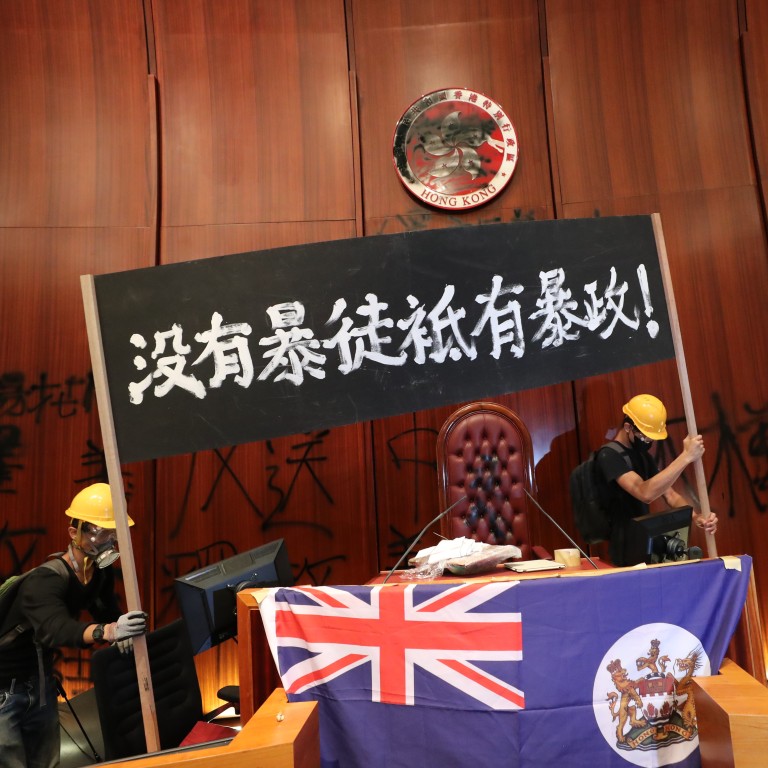
Exclusive | Hong Kong protesters ‘went to Taiwan in June’ to explore options for asylum
- Group of students travelled to the self-ruled island to find out about seeking refuge there before returning to city, according to sources
- Between a dozen and 60 demonstrators are said to have fled to Taiwan since early July, or are planning to seek shelter there
“Around mid- to late June, a group of students came to Taiwan to research their options for seeking refuge and the conditions for them to remain here under Taiwanese law, at a time of peril in Hong Kong,” said one of the sources, who requested anonymity.
The Hong Kong students did not stay for long and returned to the city after exploring the possibilities in Taiwan, according to the source.
“It was a time when things had turned really chaotic, after Hong Kong police responded to peaceful demonstrations with rubber bullets and after the ‘Raincoat Man’ suicide,” the source said, referring to a 35-year-old man in a yellow raincoat who fell to his death in Admiralty after hanging a banner protesting the now-suspended bill.
“I’m not sure what resources they needed, only one thing – whether Taiwan could provide asylum on political grounds if the situation worsened for them in Hong Kong.”
The source was speaking after Taiwanese activists revealed this week that between a dozen and 60 protesters had arrived from Hong Kong since early July, or were planning to seek shelter in Taiwan.
The South China Morning Post has learned that more than 30 Hongkongers fled to Taiwan on July 2. “It was arranged by a group of supporters,” said a second source, adding that they could not be identified for fear of retribution.
Lam, who has expressed fears over the controversial extradition bill, said he had learned about a group coming to Taiwan to seek asylum. “I understand that they already arrived in Taiwan earlier this month and have been helped by NGOs and human right groups in Taiwan, but they have not contacted me since they arrived,” Lam said.
But he said the likelihood of them being granted asylum was not clear.
“Unlike my case, these people have not been prosecuted, which would make it difficult for them to claim they have been persecuted,” he said, adding that he had spoken about the case to friends in Canada who offered to help some of the Hongkongers to seek shelter there.
He said Hong Kong people who wanted to move to Taiwan could apply to study or work there, and later apply for citizenship. Lam, the former manager of Causeway Bay Books, is in Taiwan on a tourist permit while he looks for work, and is also considering opening a bookstore.
But an observer based in Taiwan warned that Taipei could face retaliation from Beijing if it grants asylum to the Hongkongers.
“Taiwan needs to consider if the mainland will use this to apply greater pressure or carry out retaliation,” said Alexander Huang Chieh-cheng, an associate professor in diplomacy and international relations at Tamkang University.
Additional reporting by Kinling Lo and Linda Lew


